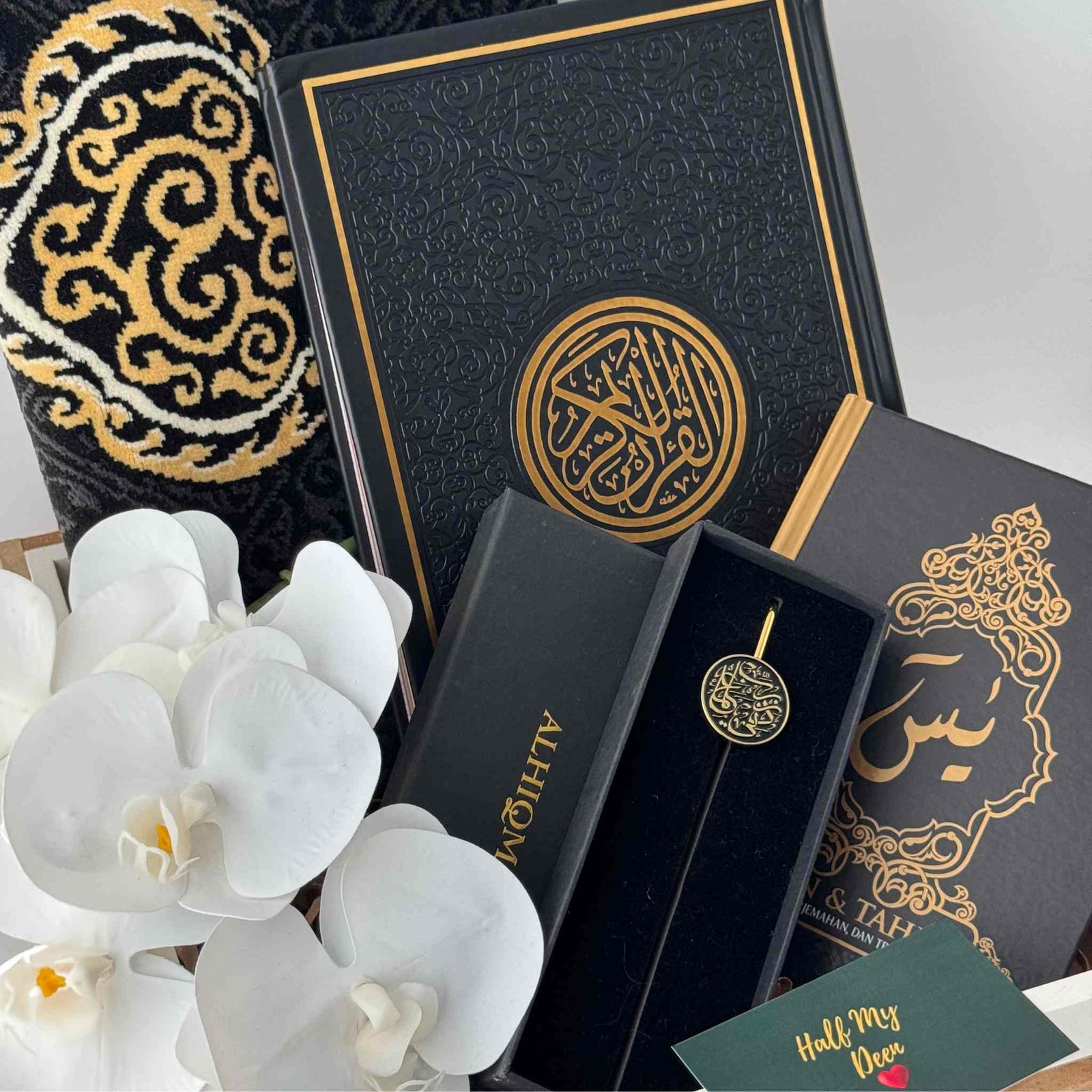Key Takeaways:
-
Beginning Actions with Bismillah: This verse teaches the importance of starting actions in the name of Allah to seek His blessings and protection.
-
Humility and Respect in Communication: Prophet Sulayman’s respectful and diplomatic approach to the Queen of Sheba highlights the importance of humility and grace when inviting others to faith.
-
Invitation to Faith: Sulayman’s letter is a reminder of the wisdom in calling others to worship Allah alone, with compassion and respect for their dignity.
The phrase "إِنَّهُۥ مِن سُلَيْمَٰنَ وَإِنَّهُۥ بِسْمِ ٱللَّهِ ٱلرَّحْمَٰنِ ٱلرَّحِيمِ" (Innahu min Sulayman wa innahu Bismillahir Rahmanir Rahim) appears in the Qur'an in Surah An-Naml, Ayah 30. It is part of a letter sent by Prophet Sulayman (Solomon) to the Queen of Sheba (Bilqis).
Here is the full verse and its translation:
Surah An-Naml, Ayah 30:
"إِنَّهُۥ مِن سُلَيْمَٰنَ وَإِنَّهُۥ بِسْمِ ٱللَّهِ ٱلرَّحْمَٰنِ ٱلرَّحِيمِ"
Translation:
“Indeed, it is from Solomon, and indeed, it reads: ‘In the name of Allah, the Most Compassionate, the Most Merciful.’” (27:30)
Context and Meaning:
This verse is part of the story where Prophet Sulayman (Solomon), who was blessed with wisdom, prophethood, and control over the jinn and animals, sent a letter to the Queen of Sheba, inviting her to submit to the worship of Allah alone.
Breakdown of the Verse:
-
"Innahu min Sulayman" (Indeed, it is from Solomon):
This part of the verse is a declaration that the letter the Queen of Sheba received was from Prophet Sulayman. It establishes the identity of the sender, who is a prophet and a king, thus giving the letter significant weight and authority. -
"Wa innahu bismillahir Rahmanir Rahim" (And indeed, it reads: ‘In the name of Allah, the Most Compassionate, the Most Merciful’):
Prophet Sulayman begins his letter with "Bismillahir Rahmanir Rahim," which is a common phrase used by Muslims to start actions in the name of Allah, seeking His blessings. It reflects the attributes of Allah as the Most Compassionate (Ar-Rahman) and the Most Merciful (Ar-Rahim). By starting the letter with this phrase, Sulayman demonstrates his reliance on Allah and acknowledges His supreme power.
Significance of the Dua:
-
Recognition of Divine Authority:
By starting his letter with "Bismillahir Rahmanir Rahim," Sulayman emphasizes that his power and authority come from Allah. This sets a tone of humility and submission to Allah, reminding the Queen and her people of the importance of acknowledging Allah's sovereignty. -
Invitation to Islam:
The letter is an invitation for the Queen of Sheba to submit to Allah, indicating that Sulayman's ultimate goal is not just political, but spiritual. He is calling her to recognize and worship Allah alone, abandoning any other forms of worship. -
The Power of "Bismillah":
This verse also highlights the significance of starting actions with "Bismillah," which is a practice encouraged in Islam. By invoking Allah’s name, a believer seeks His help, protection, and blessings in whatever they do. -
Diplomatic and Respectful Approach:
Prophet Sulayman's approach in the letter is diplomatic and respectful. Instead of immediately asserting his authority, he begins with the name of Allah, which shows his character as a prophet who seeks peace and guidance from Allah, rather than conflict.
Practical Lessons:
-
Start with Bismillah:
This verse encourages Muslims to begin their actions with "Bismillah" to invoke Allah’s blessings and seek His protection in their endeavors. -
Humility and Submission:
No matter how powerful one may be, true success comes from acknowledging and submitting to Allah's will, as demonstrated by Prophet Sulayman. -
Dawah (Invitation to Faith):
The verse shows the importance of inviting others to faith with wisdom, respect, and reliance on Allah, as Sulayman did with the Queen of Sheba. -
Respect for Others:
Even in his position of power, Prophet Sulayman communicates with the Queen of Sheba with respect and an emphasis on divine authority rather than his own.
The phrase "Innahu min Sulayman wa innahu Bismillahir Rahmanir Rahim" is a powerful reminder of the importance of beginning all actions in the name of Allah, recognizing His mercy and compassion. It also reflects the humility of Prophet Sulayman, who, despite his great power, sought to guide others to Allah in a respectful and wise manner.
Frequently Asked Questions:
Q: What does "Innahu min Sulayman wa innahu Bismillahir Rahmanir Rahim" mean?
A: This phrase means, “Indeed, it is from Solomon, and indeed, it reads: ‘In the name of Allah, the Most Compassionate, the Most Merciful.’” It marks the start of Prophet Sulayman's letter to the Queen of Sheba.
Q: Why did Prophet Sulayman start his letter with "Bismillahir Rahmanir Rahim"?
A: Starting with "Bismillahir Rahmanir Rahim" reflects humility and reverence, acknowledging Allah's authority, mercy, and compassion, and seeking His blessings.
Q: What is the significance of "Bismillah" in Islamic tradition?
A: "Bismillah" is a phrase Muslims use to begin actions, seeking Allah’s protection, guidance, and blessings in their endeavors.
Q: What was Prophet Sulayman's goal in writing to the Queen of Sheba?
A: Prophet Sulayman invited her to submit to Allah and embrace monotheism, showing that his intentions were spiritual rather than solely political.
Q: How does this verse teach the importance of respectful communication?
A: By addressing the Queen of Sheba with respect and using "Bismillah," Prophet Sulayman exemplifies a gracious approach, highlighting the role of kindness and wisdom in inviting others to faith.











